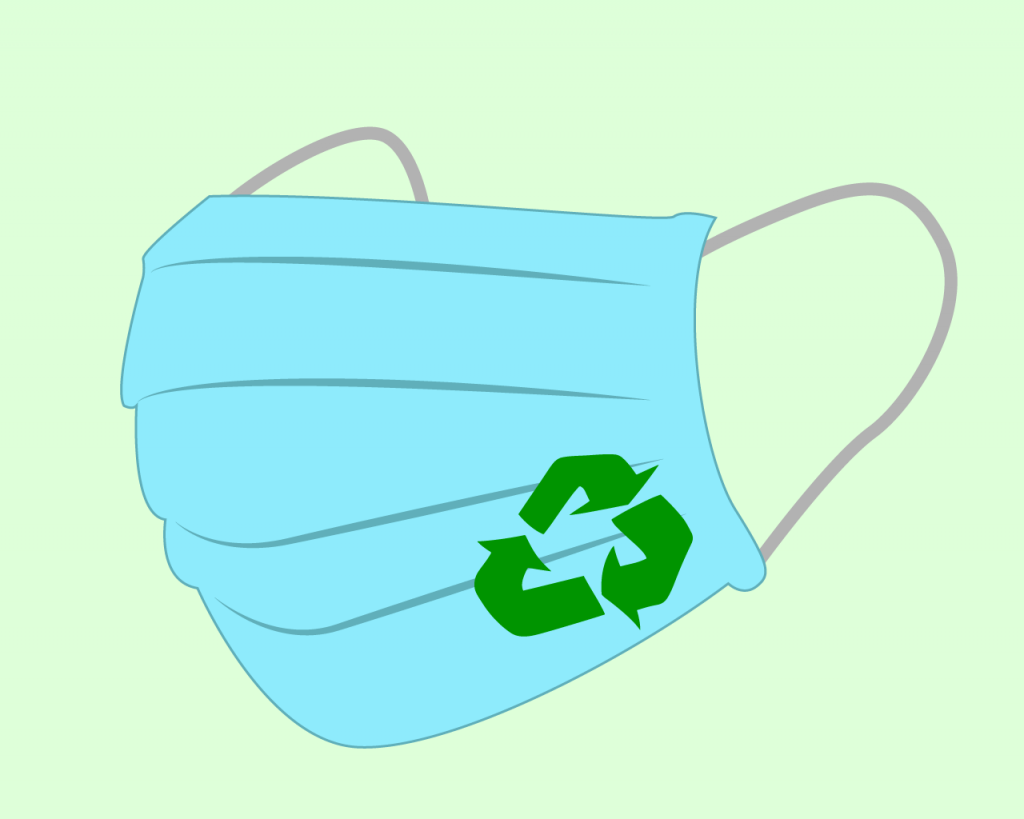Binghamton University’s Science Library has recently become a TerraCycle location, offering on-campus students and staff an effortless and environmentally sound way to discard disposable face masks and other frequently used, recyclable items.
TerraCycle — a private recycling company seeking to eliminate the idea of waste — will work with the Sustainability Hub in relation to its Zero Waste Box platform. The platform allows users to recycle hard-to-recycle items, including masks along with any type of waste, ranging from “coffee capsules to complex laboratory waste,” according to the TerraCycle website. Partners such as BU choose a waste stream they would like to recycle, purchase a preferred box size and later send full boxes back to the company to be repurposed.
According to the Sustainability Hub’s staff, the box is only the beginning of BU’s partnership with TerraCycle.
Neyda Gilman, the assistant head of sustainability and science, technology, engineering and mathematics (STEM) engagement and health sciences librarian, said another box, most likely specifically for plastic packaging, will be added once things settle in the Sustainability Hub’s physical space.
“Hopefully by the spring semester, we’ll bring in some other boxes,” Gilman said. “If anyone has requests for TerraCycle boxes to be added, we’d love to hear them!”
The Sustainability Hub is defined on the BU Libraries’ Sustainability Hub Online Guide as a space that seeks to promote collaboration and connection for all things sustainability-related on campus. The Sustainability Hub hopes to facilitate a culture in which sustainability efforts are respected and easily accessible.
Gilman explained that a driving force behind the addition of the TerraCycle box is to provide students with resources to make sustainability-related practices easier.
“Recycling is often one of the first things people think of when they think of being sustainable, but it is a complicated topic,” Gilman said. “We hope that providing a way for people to recycle hard-to-recycle items not only makes recycling those items easier but also makes people think about the items they are using and the waste involved.”
Jennifer Curran, a sophomore majoring in accounting, said she plans on utilizing the resource, and discussed its importance now that face masks are so prominent.
“Disposable face masks are littering areas and eventually making their way into the ocean and other ecosystems, which can harm animals,” Curran said. “I think that this initiative offers a convenient way for students to dispose of their old face masks to ensure that they get recycled properly. Small steps to help the environment and mitigate pollution leave large impacts.”
Jennifer Embree, Sustainability Hub coordinator and subject librarian, was enthusiastic about the University’s affiliation with TerraCycle.
“I was just excited about the idea of providing a space on campus where people could recycle their hard-to-recycle items, and perhaps a space to learn a little bit more about the process of recycling,” Embree said.
Amy Puthumana, Science Library employee and a junior majoring in business administration, expressed her excitement over the addition of the box.
“Over the course of the [COVID-19] pandemic, I’ve thought a lot about the waste generated by [disposable] masks, especially since I prefer them to the reusable cloth masks,” Puthumana said. “The [TerraCycle] program creates a way to combat some of that waste where there previously was no way [to do so].”
Puthumana had recommendations for prospective projects, hoping that new boxes might be placed in a location where users may discard old masks for new, clean ones.
“As the program expands, it would be amazing to see recycling boxes placed in residence halls and other areas with high student populations,” Puthumana said. “For example, gyms, where masks are often uncomfortable to wear after working out.”
Martin Larocca, the resource recovery manager of BU, said he believes initiatives like the TerraCycle program are great. He has “worked to advance [the] Physical Facilities’ recycling tracking and efficiency to reduce campus-generated waste,” according to BU’s Sustainable Communities webpage.
“Programs that help engage students in having a sustainable mindset provide support for all other waste reduction programs currently in place,” Larocca said. “I hope students take this opportunity to further their awareness on the different sustainability initiatives [BU] has to offer.”



